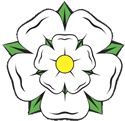 |
||||||||||||||
|
|
||||||||||||||
Chest
39 in. x 22½ in.(w) x 22 in. The main carcase of this box is constructed from boards one inch in thickness. The top of the box is carved from a two inch piece of oak to create a convex surface for the lid. This top sits in a groove cut in the sides and ends of the box. The sides and ends are joined with simple through dove-tail joints in the traditional manner. The spacing of the tails and pins at each of the four corners, allows for a single pin near the top of the box to be sawn through so that a lid might be formed from the whole carcase to ensure a precise fit. The bottom of this box is made from red cedar, jointed to make one board which sits in a frame fixed to the inside of the main carcase. The interior of the box is furnished with a sliding dovetailed tray, made from oak. The tray has three bottom panels made from yew. The panels are fielded on their undersides but fit flush inside the tray. With the lid open the concave side of the top is revealed. Carved in the hollow surface is a newt in sinuous pose. The lid is supported by four large brass butt hinges. A wooden bezel is fitted to the main structure to locate the lid as it closes. This also tends to buffer the closing lid as air is compressed. All the hardware is solid brass. The handles are cast from wooden patterns made by Peter Leonard Bailey. The chest may be secured with padlocks passed through the brass locking/lifting plates, fitted to the front of the chest. The chest sits on two hardwood skids fixed to the front and back panels. The striking features of this chest are its understated elegance and its pleasant colour. The lack of adornment enhances the grain of the wood and the subtleties of the shape and proportions of this furniture piece. |
||||||||||||||
| courses : tools : school : principal teacher : gallery : home | ||||||||||||||
|

